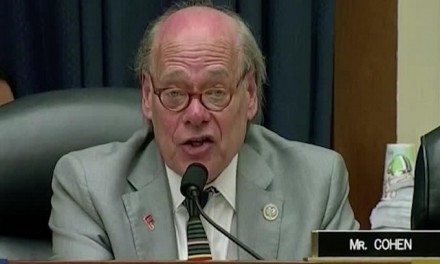In the midst of the controversy surrounding President Donald Trump’s executive order banning refugees from seven war-torn, terrorist-harboring nations, Syrian Christians who immigrated to Pennsylvania agree with the president’s move to ban Syrian refugees indefinitely.
“Following the issuance of Trump’s recent executive order that temporarily suspends Syrian refugee resettlement in the United States pending a review of the government’s lengthy vetting process, a group of Syrian Christians who have lived in the United States for decades [have been weighing in] on the order that has caused thousands of Americans to protest at airports across the nation,” The Christian Post (CP) reported.
Big mistake …
After immigrating to the United States years ago as Syrian Christians, Elias Shetayh and Aziz Wehbey – who currently reside in Allentown, Pennsylvania – are not in agreement with immigration activists protesting Trump’s recent order.
“Trump is right – in a way – to do what he’s doing,” Shetayh told The Washington Post. “This country is going into a disaster.”
Despite news coverage from the mainstream media highlighting multitudes of protesters opposing Trump’s order temporarily banning refugees, two Syrian Christians claim that the decades-long experience in America has helped them see the dangers of having a lax immigration policy – especially in this day and age.
“Shetayh has lived in the United States for over 46 years, while his wife, Georgette, has lived in America for 30 years, and they are the owners of a restaurant in Allentown, Pennsylvania,” CP informed. “Wehby came to the United States in 1991, and both Shetayh and Wehby are now U.S. citizens and Trump supporters.”
They both believe the risks of freely admitting refugees from war-torn, terrorist-laden nations greatly outweigh humanitarian interests.
“We would not like to bring refugees for a simple reason – we do not know their background,” Wehbey expressed to the D.C. daily. “We’re concerned about if, God forbid, a terrorist attack happened here . . . that we’re all labeled as bad people. I hate to say it.”
The two longtime American residents are not alone, as many Syrian Christians in Allentown’s 6th ward agree with their take on refugee immigration, and much of their reasoning behind their position has to do with the United States government’s overwhelmingly disproportionate acceptance of Muslims from their former country.
“Although Shetayh and other Syrian Christians who have been living in the United States for years feel that the refugee ban is an appropriate precaution to take, some of their reasoning seems to stem from the fact that 99 percent of the 12,000-plus Syrian refugees who were resettled in the U.S. in the last year have been Muslim,” CP noted.
Wehbey insisted that his position is not based on religious intolerance.
“We’re not by any means prejudiced against Islam,” he assured. “As long as you’re a good human being, you have the right to believe whatever you want to believe. But the majority of the population over here are Christian Syrian. … Now they’re bringing new elements from Syria, refugees shook by a religious war. They may have hate in their heart because of whatever happened to them. We don’t want to see a religious conflict over here.”
Escalating crisis
As the sixth year of civil war in Syria is under way, the call for Western nations – including the United States – has increased.
“Considering that Syria has been involved in a civil war since 2011 and the barbaric Islamic State terrorist group controls territory within the country, the fleeing of millions of Syrians over the last few years has led to the biggest refugee crisis facing the world today,” CP’s Samuel Smith pointed out.
Muslims might make up 99 percent of Syrian refugees attempting to enter the U.S., but Christians from the war-torn Middle Eastern nation are also affected by the ban.
“Although the majority of Syrian refugees who have been resettled to the U.S. in the last year have been Muslim, it didn’t take long for Trump’s Syrian refugee ban to negatively impact two Syrian Christian families that were detained at Philadelphia International Airport and sent back to Qatar last Saturday – the morning after Trump issued his executive order,” Smith continued. “One of the Syrian families deported to Qatar was supposed to join their relatives Dr. Ghassan and Sarmad Assali, who are orthodox Christians, in Allentown. Assali’s two brothers, their wives and children began their attempt at immigrating to the United States in 2003 and finally received approval from the U.S. government last December.”
Assali recounted her recent encounter at the airport.
“Two security guards were waiting for them,” Assali told NBC 10. “They took them. They said, ‘Are you Syrians?’ They said, ‘Yes.’ They said, ‘Come with us.’ I understand [Trump] wants to make America safe. We’re all on with this. I definitely want to be in a safe place, but people need us and we need to be there for them.”
Pro-Trump, anti-ban
Other Syrian Americans living in Allentown who support Trump are not supportive of his order banning Syrian refugees.
“These poor people are coming from war,” Pennsylvania resident Fouad Younes expressed to The Washington Post. “For them to get here and all of a sudden to be told – and they’re legal and have visas – and all of a sudden you tell them, ‘You can’t come in. You have to go back’ … that’s a shame,”
Having emigrated to the U.S. during the Syrian civil war, Younes fully understands, respects and supports Trump’s foreign policy, but he noted that his take in that area often leans to the Left. However, he is finding it hard to back the new commander-in-chief’s order in his current situation.
“As the Younes family has been successful in getting a number of their relatives to the United States, they were holding out hope that they could help one of their family members who has not made it to the United States apply for refugee status,” Smith explained. “However, the executive order has put those hopes on hold. Although Younes admits that there are no ‘moderate’ rebel groups in Syria, he still thinks the U.S. government should be more sympathetic.”
“[The U.S. should be more compassionate to the] poor people that are running away from war,” Younes insisted. “These aren’t people that are going to hurt you.”
Despite Younes’s disagreement with Trump on his refugee order, he still supports him and his administration.
“It’s not going to necessarily turn me against him,” Younes assured. “It just turns me against the policy. I’ve always been against the policy. But instead of fighting amongst ourselves, let’s give the man a chance. Maybe he’s going to bring jobs back.”
—-
Copyright American Family News. Reprinted with permission.


















Recent Comments